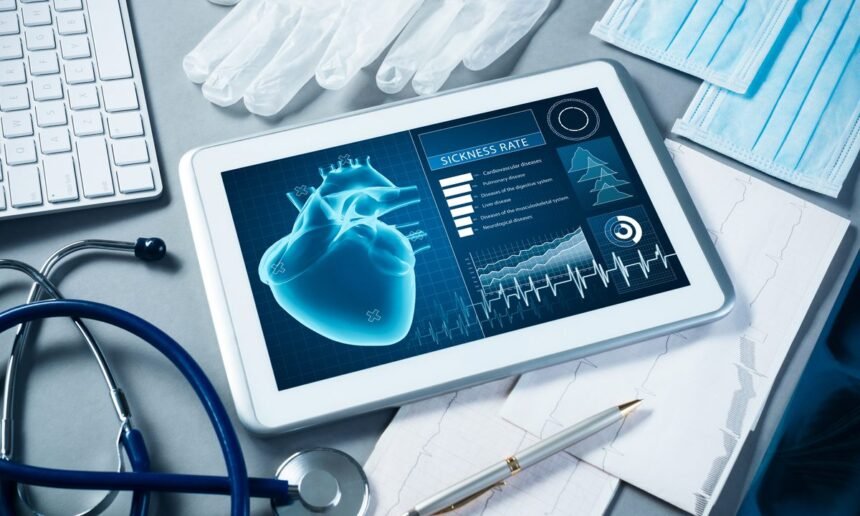By definition, “Health Tech” refers to technologies specifically developed for the purpose of improving all fields and aspects of the healthcare system. This can range from telehealth to robotic surgery. These IT instruments or software designs make medicine easier and more efficient. They contribute new knowledge to medicine and other treatments in order to improve the quality of care provided. This is the fastest and most effective way of ensuring quality and efficiency in this multibillion-dollar industry.
Benefits:
Health tech has the ability to filter out the unwanted and tedious aspects of healthcare—the long waiting hours, the inefficiency and unpredictability of medicines, the limited access to health insurance—and just evolve into a better, tech-infused healthcare provider.
Improved Efficiency:
In recent times, healthcare has become more accessible to the masses. This has been made possible by health tech and, in some cases, insurtech. Medicine is more efficient due to artificial intelligence and predictive analysis. Some medical procedures can now be done smoothly with the help of minimally invasive techniques. These tools are ultra-precision and help to reduce scarring.
Promoting Quality Care:
In recent times, making healthcare more accessible has been the goal for many, but how exactly does one achieve that? One way of achieving this is by tailoring everyone’s experience, as this cannot be a case of “one size fits all.” This personalized approach is extremely beneficial, as it tailors insurance payments, diets, sleep schedules, etc. This helps decrease stress for both healthcare professionals and patients.
Administrative Health Tech:
A variety of software tools and applications can make it much easier for hospitals to manage their ever-growing administrative workload. AI can streamline patients’ visits by doing a few of the mundane tasks quickly, like estimating wait times, predicting busy hours, asking patients preliminary questions, and also prioritizing schedules so everyone is given an equal and just opportunity.

Health Tech and Surgery:
Over the years, surgery has witnessed some of the most significant advancements in health tech efficiency. From small, non-invasive procedures to open-heart surgery, robots are assisting with a wide range of surgeries. The small robot that crawls across the surface of the heart to the enormous arm that serves as an extra set of hands during surgeries is just a few examples of the many sizes and shapes of these robotic surgical helpers. Yet technology hasn’t just taken over the operating room because of robots. Doctors and surgeons are using virtual and augmented reality to better execute a variety of crucial duties, such as rehearsing new surgical methods or thoroughly explaining operations to patients.
Drug Development and Medical Trials:
A future era of medication research and development is being driven by AI and machine learning in the pharmaceutical business. Such tools are currently being used in a variety of areas across the industry to aid in speeding up time-consuming operations like identifying patients who would most benefit from a given medication trial and pinpointing specific chemical combinations that may assist in building the ideal treatment.
Aiding Fitness:
The health tech ecosystem has begun to place more emphasis on fitness. To improve fitness and lower avoidable expenses on the healthcare system, the tech sector has developed hundreds of wearables, apps, and other gadgets that do everything from tracking our exercises to assessing our sleep schedules.

Error Minimization in Diagnosis:
A diverse variety of technological tools are currently being used by the healthcare sector to address one of its main issues: erroneous or delayed diagnosis. Healthtech businesses have aided in the earlier and more accurate detection of lethal diseases like cancer by integrating technology into genetics, pathology, and other crucial diagnostic domains.
Mental Health:
One of the emerging areas of healthcare that is really enjoying the advantages of technology in mental health. Virtual reality is thought to be a powerful weapon in the struggle against PTSD, depression, and perhaps Alzheimer’s. Patients who undergo exposure therapy gradually train their brains to become immune to memories of their prior traumas until those memories no longer have a negative impact on them. Also, telemedicine apps have made it simpler for people to get in touch with counsellors and medical experts by facilitating support and communication channels and removing the need to wait for an in-person consultation when under pressure.
For a good few decades now, health technology has been a potent part of our lives, and it has brought a lot of effectiveness and advancements that otherwise might not be possible. Health tech is still on its way to rising and helping more lives.
For more such updates, keep reading techinnews



